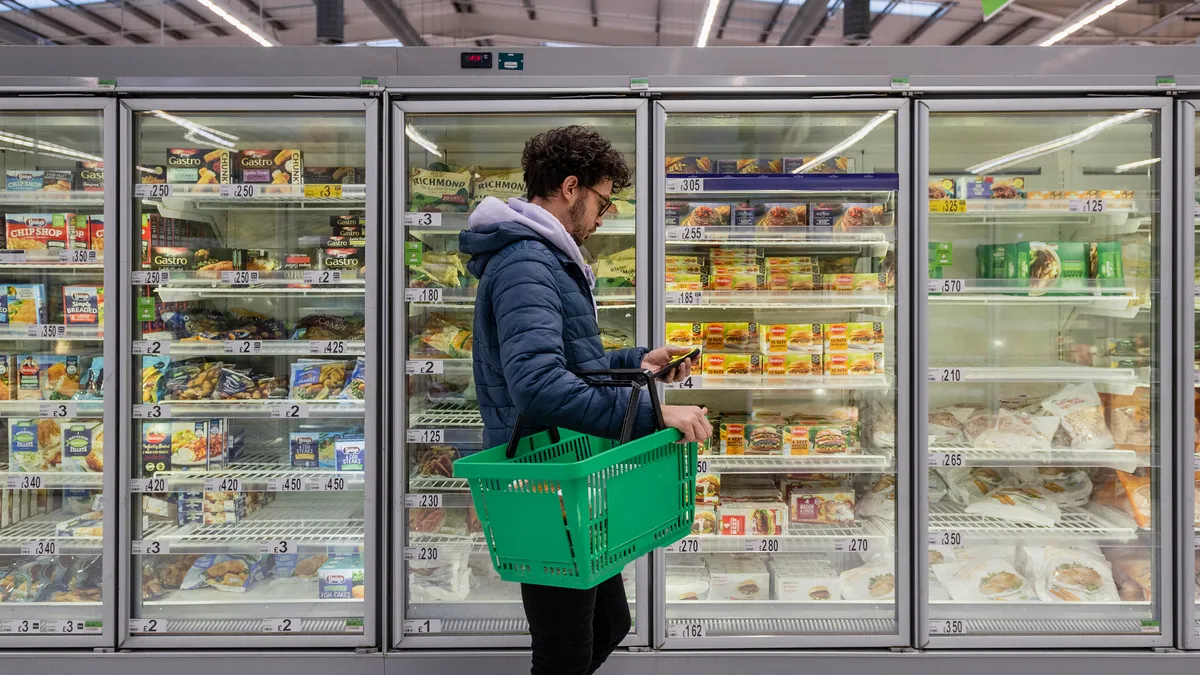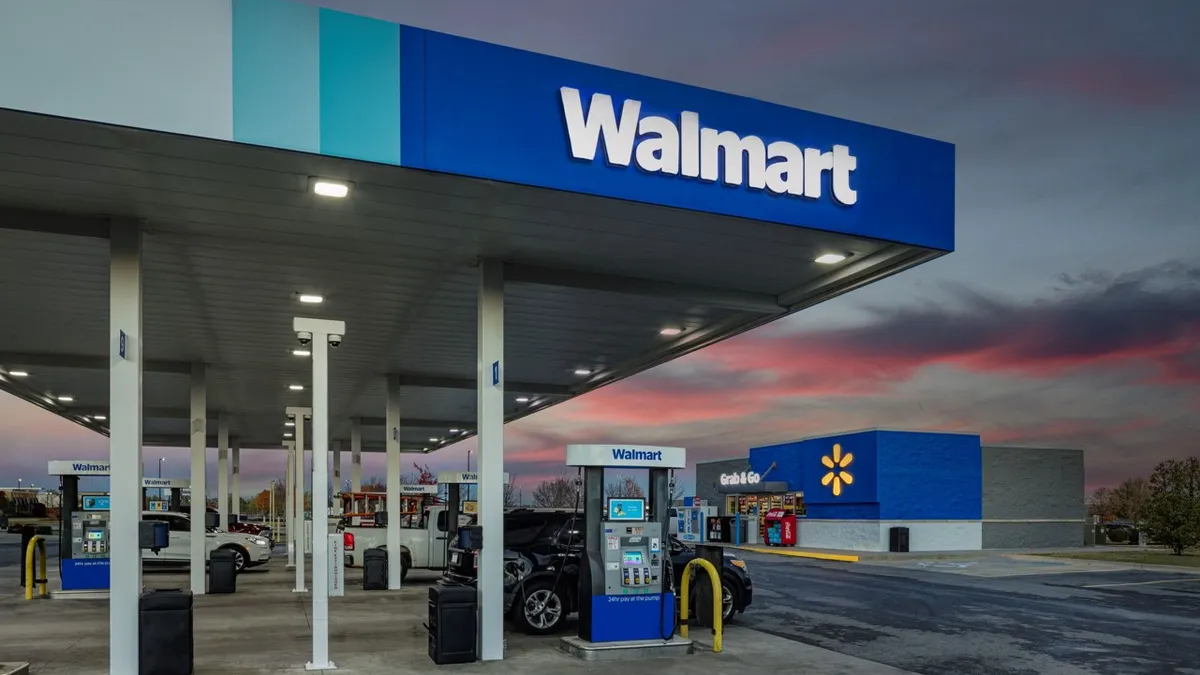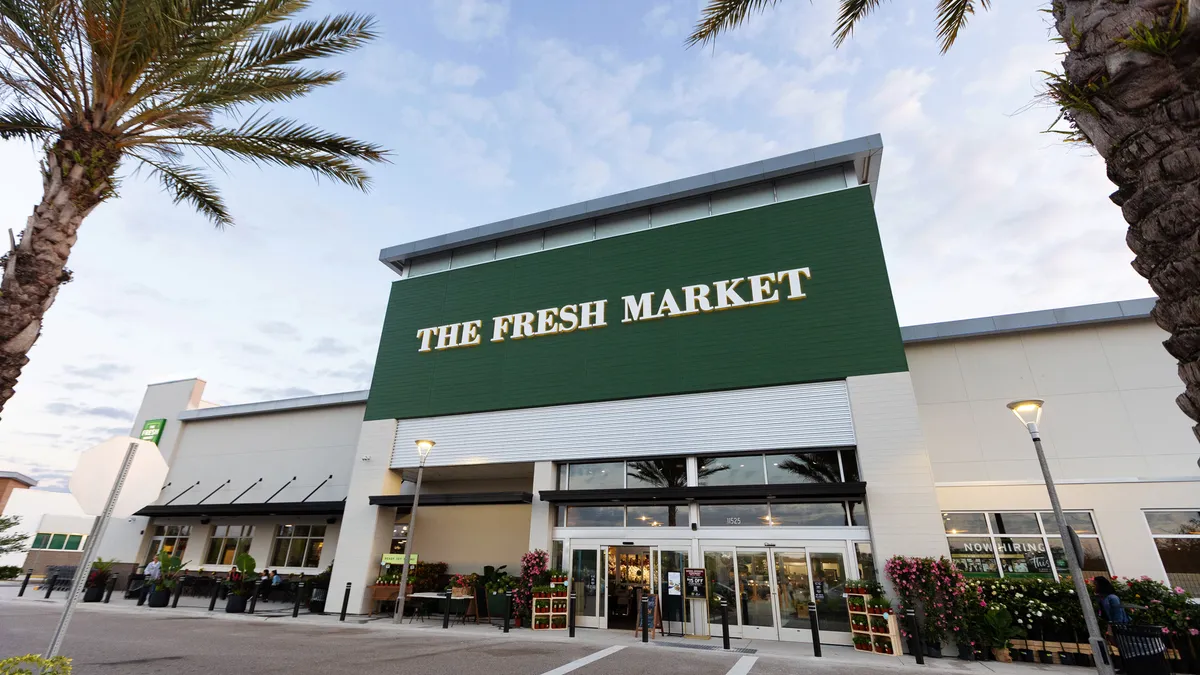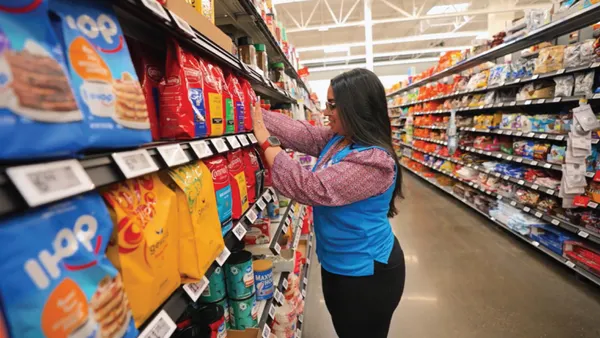As they review their companies’ results in 2022, grocery executives have been looking back on a year defined by relentless price increases, evolving consumer behavior and questions about how historic shifts unleashed by the pandemic will affect the industry’s performance as the economy plods ahead.
Last year’s unprecedented inflation posed an especially tough challenge for grocers last year, painting supermarkets as villains in the eyes of frustrated shoppers even as store operators scrambled to hold down food prices. Rising costs on nearly all fronts kept retailers off balance as they navigated during what Target CEO Brian Cornell described last month as “a rapid escalation to the most expensive operating environment we've seen in decades.”
As they look ahead to the rest of 2023, executives see inflation moderating, but not at a consistent rate across categories. They’re also concerned about shoppers’ ongoing price sensitivity and employing various tactics — like turning up the volume on private label merchandising — to keep them shopping in their stores.
Here’s a sampling of what top officials of several publicly traded supermarket companies told investors during recent earnings calls about the near-constant uncertainty they faced last year and their predictions for the rest of 2023.
Inflation will moderate as the year continues
Grocers are coalescing around a sense that the pace of price increases will slow considerably as 2023 progresses, bringing long-awaited relief to consumers and retailers alike. But a reduction in inflation is also likely to come with downsides for retailers, executives said.
- Kroger: A path toward slower price increases is likely to pressure on identical store sales during the second half, said Gary Millerchip, the grocer’s CFO. During “the last couple of quarters, inflation has really sort of stabilized … we're expecting sort of towards the end of the year that we get to sort of between low- and mid-single-digit inflation level rates,” Millerchip said, adding that the supermarket chain is assuming inflation will decline to an annual rate of about 4% to 5% later in 2023.
- BJ’s Wholesale Club: For all the headaches inflation has dealt retailers, higher prices have brought in more money as shoppers have had to dig deeper to pay for many items. “We're still seeing net inflation. Some categories are up, some categories are down. But generally, a tick lower today than we were seeing a quarter ago or two quarters ago or so on,” said President and CEO Bob Eddy. “You know, that may pressure comps, right? And it may pressure margins as we go.”
- Walmart: Even as inflation declines, the effect of that trend on prices is likely to be uneven across the many types of products grocers carry. “Think of the fresh categories as kind of bouncing around, going up and down, and being more volatile,” said President and CEO Doug McMillon. “It's dry grocery and consumables that we think are going to create the pressure that customers are going to feel and have the impact as it relates to us on mix over the course of the year.”
Consumer behavior has notably shifted
Grocers have rolled out a number of discounts and promotions to keep people coming back to their stores as conditions have changed, but shoppers’ buying habits and loyalties have evolved — and those changes could be around for a long time.
- Sprouts Farmers Market: Inflation has nudged people to try to save money by buying large quantities of products, CEO Jack Sinclair said. “One of the things that we’ve picked out ... [is that] people kind of migrate to bulk a little bit because it allows them to get the portion control and allows a significant price advantage per pound against equivalent things in packaged parts of the store,” said Sinclair.
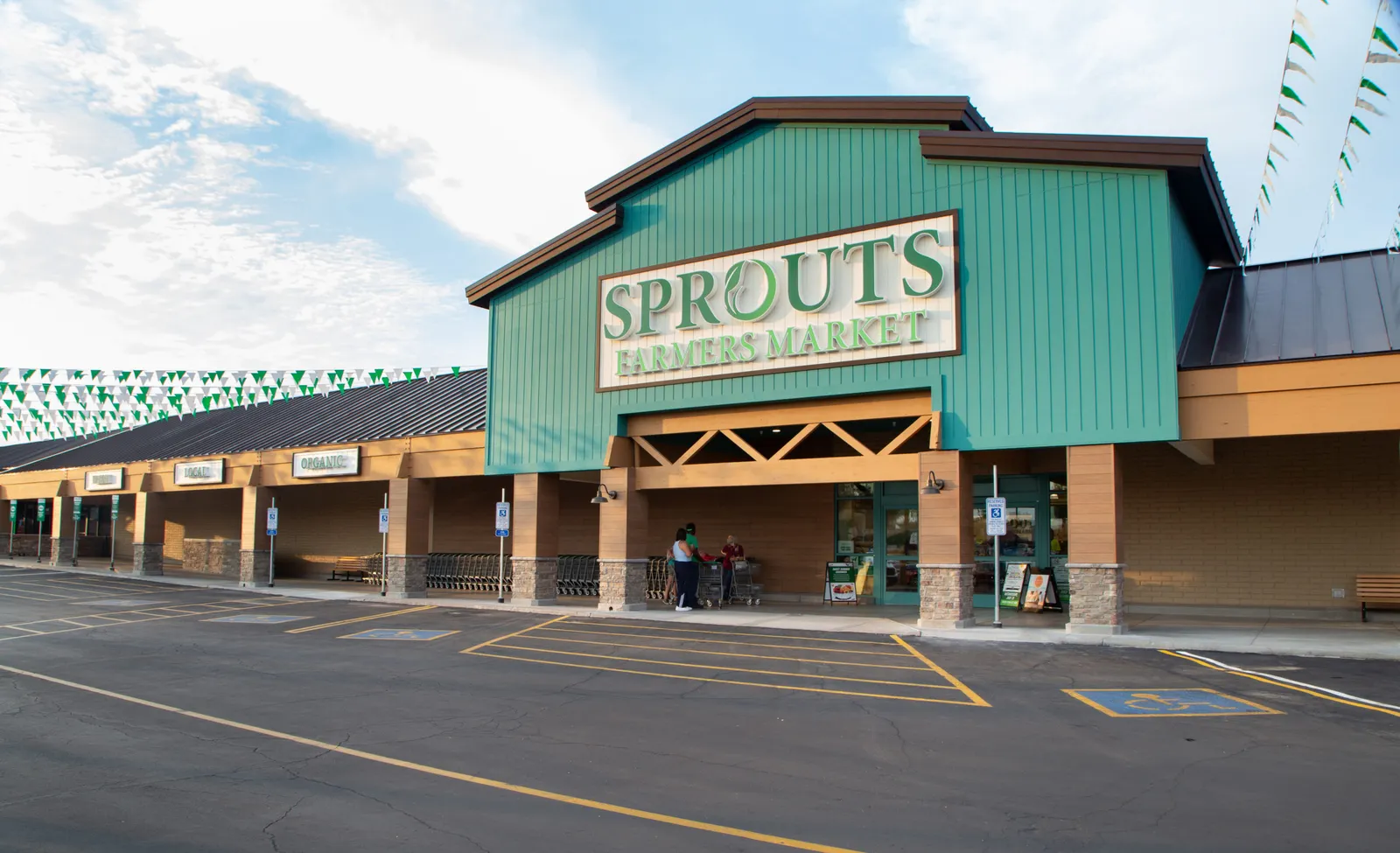
- Costco: High prices have emerged as a key driver for membership retailers, which have attracted and kept shoppers in search of the low-cost groceries and other goods companies like Costco and its rivals are known for selling. “Our new sign-ups are continuing to be strong, up 7% in terms of new sign-ups, less than 3% new openings. So those things bode well, but people certainly are spending their dollars where they feel they should be spending them,” said Costco CFO Richard Galanti. “And certainly, we know we're getting the customer in. We're getting more of them in and they're, again, renewing [memberships] at the highest rate ever.”
- BJ’s Wholesale Club: Like Costco, BJ’s has benefited as the pandemic and inflation have rewritten norms in retail. “We very much ... thank our grocery competitors for their reliable donation of share every year, year in and year out.… Our expectation is that we'll continue to do that,” said Chief Commercial Officer Paul Cichocki. “We want to win that weekly shop.”
- Target: A substantial number of shoppers have changed what they buy and how they shop, causing fundamental shifts for retailers. With the pandemic changing many people’s work patterns, “many of us are spending a lot more time working at home, which has implications for long-term buying patterns in multiple categories, most notably, our food business,” said CFO Michael Fiddelke.” Fulfillment mix has also seen a permanent shift. Our same-day services have seen explosive growth. They now account for more than half of our digital sales and more than 10% of our total sales. And that trend shows no signs of reversing.”
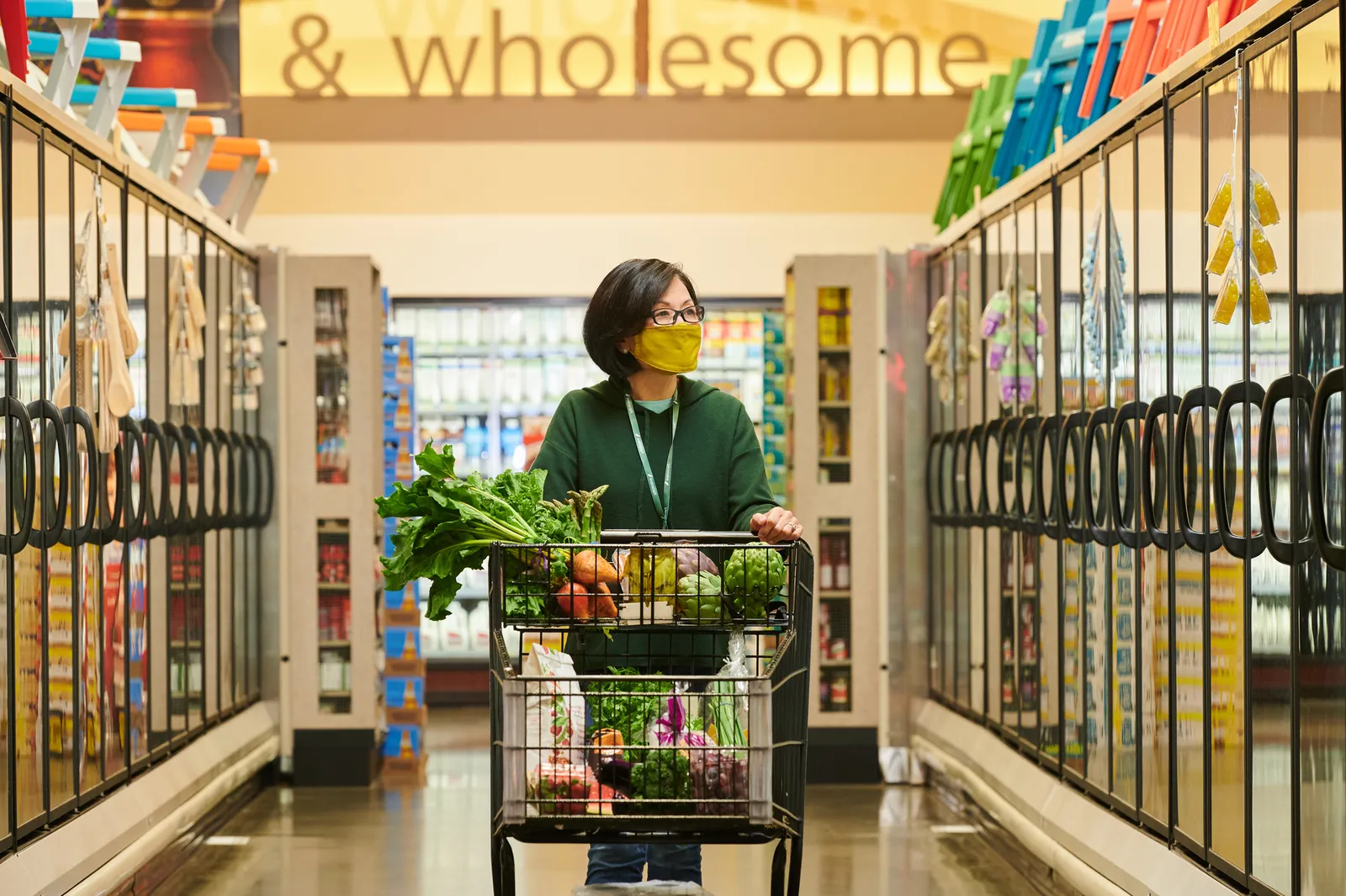
People are buying less and volumes are down
Inflation has caused shoppers to cut back on the amount of products they purchase per trip, posing another challenge for retailers.
- Sprouts Farmers Market: Shoppers have recently been buying less per trip and shifting their spending across categories to save money, the specialty retailer has found. “We’ve seen a kind of pretty steady traffic, which we’ve been encouraged by, and in terms of the consumer behavior with the level of food inflation, you’ve seen a trade down as we’ve talked about. People have been trading down in terms of both the number of items in the basket and trading down in certain categories,” said CFO Chip Molloy.
- Ahold Delhaize: The Dutch grocery chain has seen volumes decrease in the U.S., President and CEO Frans Muller said. “That is an unhealthy development, both for retailers and for manufacturers. And that's why we see also now in our conversation with the manufacturers that most of them also would like to fund and to sponsor again volume growth and case growth,” Muller said.




